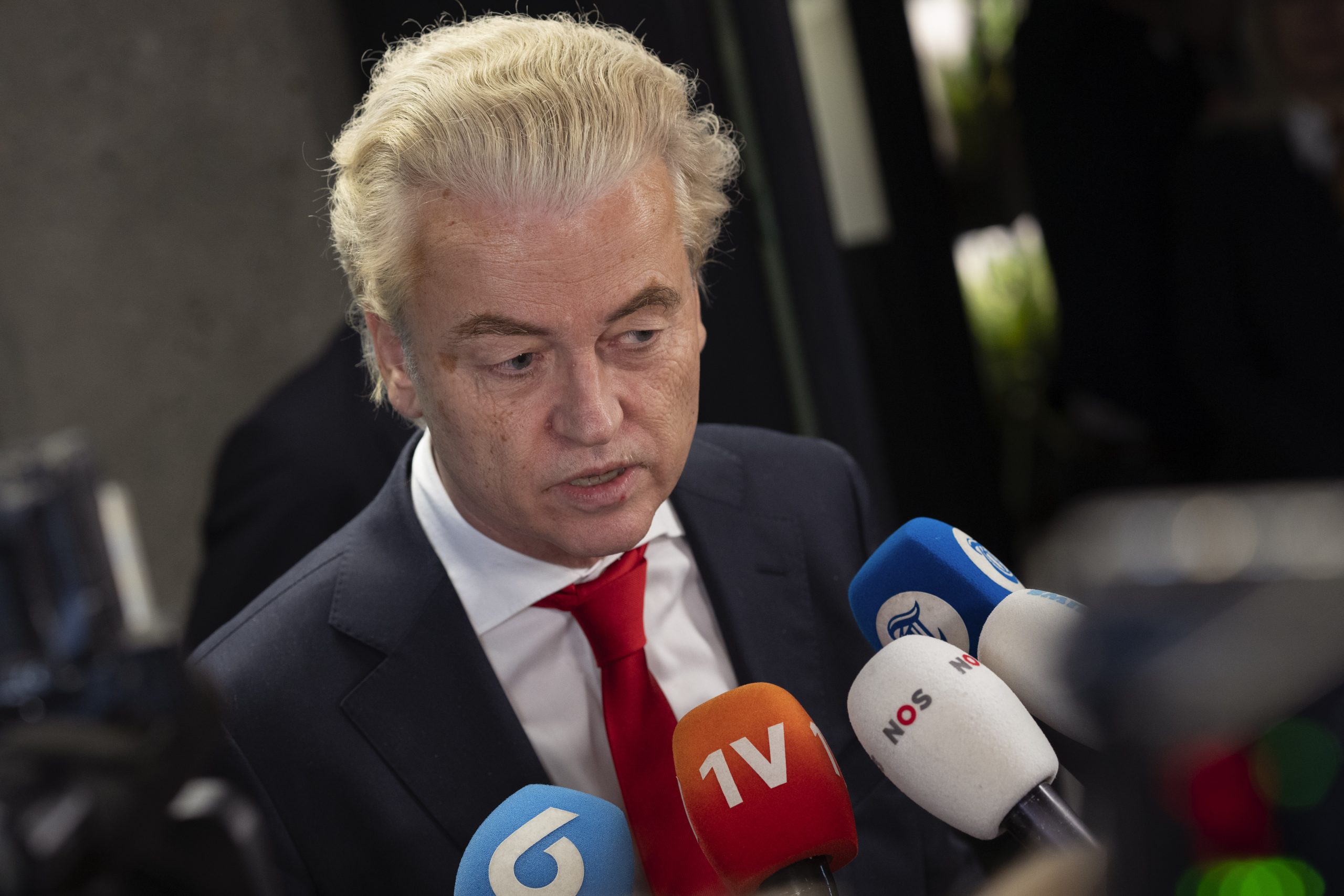THE HAGUE, Netherlands — A senator from the Netherlands’ Party for Freedom was appointed Friday to investigate possible governing coalitions after the far-right party’s election victory, while the party of outgoing Prime Minister Mark Rutte said it would support a center-right administration in parliament but not join the next government.
The Party for Freedom, or PVV, led by veteran anti-Islam lawmaker Geert Wilders, won 37 seats in the 150-seat lower house, indicating a seismic shift to the right for the Netherlands. Rutte’s People’s Party for Freedom and Democracy won 24 seats, 10 fewer than in the previous election, according to a near complete count of Wednesday’s votes.
[time-brightcove not-tgx=”true”]
After a meeting of party leaders at the parliament, PVV Senator Gom van Strien was appointed to investigate possible coalitions. Newly elected lawmakers will debate his findings on Dec. 6.
Dilan Yeşilgöz-Zegerius, the new leader of the People’s Party for Freedom and Democracy, or VVD, tweeted that after losing 10 seats in the election, the longtime ruling party would “make possible and constructively support a center-right Cabinet with good policies,” but wouldn’t join a government.
Wilders called the decision, which was announced before formal coalition talks had begun, “extremely disappointing.”
The election result and appointment of Van Strien pave the way for Wilders to take the lead in forming a new coalition and potentially to succeed Rutte as prime minister. However, he will likely have to convince potential coalition partners that he would tone down some of his anti-Islam policies.
His party’s election platform states that the Netherlands “is not an Islamic country. No Islamic schools, Qurans and mosques.”
One potential coalition partner for Wilders is the recently formed New Social Contract party, or NSC, which won 20 seats. The party’s centrist leader, Pieter Omtzigt, said he couldn’t accept “unconstitutional” policies.
Article 1 of the Dutch Constitution outlaws discrimination “on grounds of religion, belief, political opinion, race, gender, disability, sexual orientation or on any other grounds.”
In an election-night victory speech, Wilders pledged not to push any policies that would breach Dutch law or the constitution.
His foreign policy also has raised concern among the Netherlands’ allies, Dutch caretaker Defense Minister Kajsa Ollongren said Friday.
Wilders’ election program says “we will not send our money and defense equipment such as F-16s to Ukraine.”
“I hope and expect that the support will remain,” Ollongren told reporters in The Hague. She said she had received concerned calls about the issue since the election.
The caretaker administration led by Rutte will remain in office until a new coalition is formed.
In August, Rutte said that the Netherlands and Denmark would send F-16 fighter jets to Ukraine to help the fight against Russia’s invading forces. An international training hub for F-16 pilots including from Ukraine was opened earlier this month in Romania.
Rutte tweeted Friday that he had held one of his regular calls with Ukrainian President Volodymyr Zelenskyy.
“The Netherlands stands with the people of Ukraine and supports Ukraine in its fight against Russian aggression,” Rutte said.

